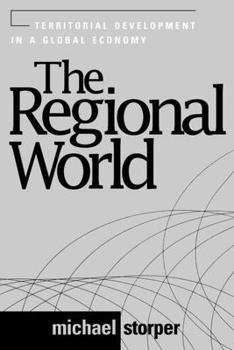The Regional World: Territorial Development in a Global Economy
This pioneering volume proposes a compelling new theory of how regions have sustained their economic viability in the era of multinational corporations. Unlike traditional approaches, which analyze economic systems in terms of their mechanics (inputs, outputs, prices, technology, etc.), this work views them as systems for coordinating human actions and relationships. Reconceptualizing the role of learning, technology, and local institutions in development,...
Format:Paperback
Language:English
ISBN:1572303158
ISBN13:9781572303157
Release Date:October 1997
Publisher:Guilford Publications
Length:338 Pages
Weight:1.10 lbs.
Dimensions:0.9" x 6.0" x 9.1"
Customer Reviews
0 rating





